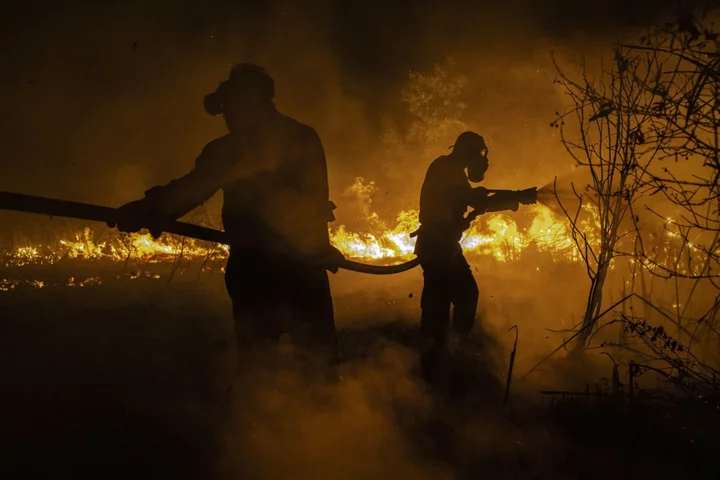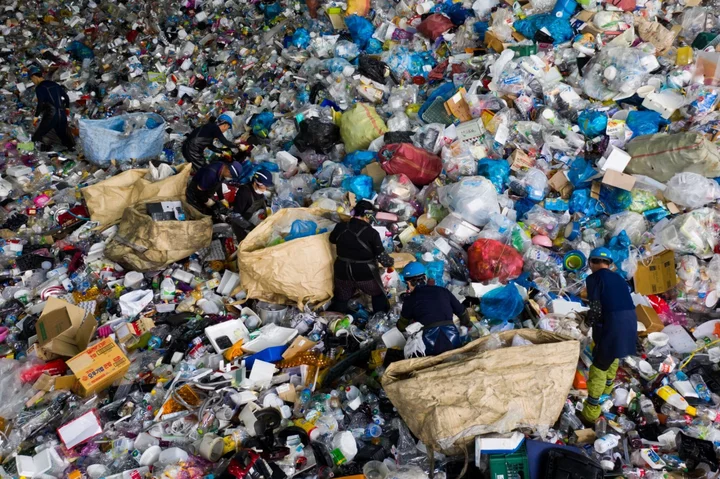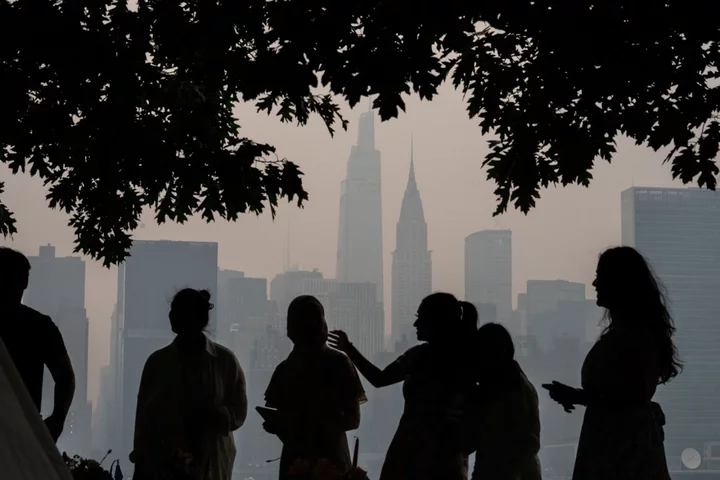Firefighters are rushing to extinguish forest and land fires across parts of Indonesia, with the scorching weather in the Southeast Asian nation worsened by an El Nino dry spell and set to peak this month.
Eight out of 44 wildfire incidents in southern Sumatra have been successfully extinguished, the Ministry of Environment and Forestry said in a statement late Friday. Ground extinguishing and water bombing operations are underway to put out the rest, according to the statement.
Firefighters are also aiming to finish extinguishing forest and land fires in Central Kalimantan — the Indonesian portion of Borneo — over the next two to three days, especially as some incidents occurred near a road and a school, the environment ministry said Sunday. There are 147 hot spots identified as medium to high severity in the province.
Indonesia’s Meteorological, Climatological, and Geophysical Agency has warned that the likelihood of forest and land fires will persist, with little to no recent rainfall in many parts of the archipelago. The government is implementing cloud seeding to induce rain that can keep the peat wet and fill reservoirs needed for water bombing.
El Nino Raising Risk of Southeast Asia Haze Crisis This Year
Smoke from fires is a recurring problem in Southeast Asia, disrupting tourism and costing local economies billions of dollars. It usually originates from natural or man-made fires in Indonesia and neighboring Malaysia, such as when conditions are dry and lands are cleared for plantation crops.
Malaysia has blamed the current fires in Indonesia for haze and worsening air pollution in western parts of the country.
Hot spot clusters in southern Sumatra and Jambi continue to release moderate to thick smoke that’s blown toward the northwest, while hot spots in parts of Kalimantan are producing thick smoke plumes, which can cause haze in Sarawak, according to the Malaysian environment department’s director, Wan Abdul Latiff Wan Jaffar.
The department said it has increased enforcement and daily monitoring of areas that are at risk of fires, and has reminded the public not to do any burning or allow burning on their land.
According to an AFP report on Saturday, Indonesia’s environment minister, Siti Nurbaya Bakar, denied the claims of transboundary haze, telling Malaysia it should not “talk carelessly.”
--With assistance from Eko Listiyorini.









